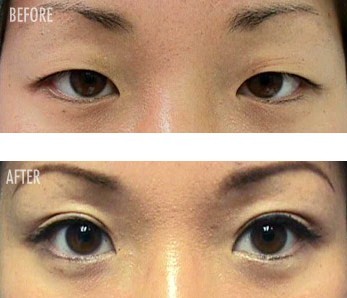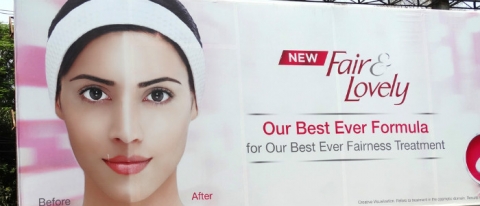What is the same about the images of the Pakistani brides above?
If you said their skin is much lighter in the full makeup pictures, you would be correct. Is this an accident? Is foundation that matches their skin color unavailable? No to both questions. These 4 pictures highlight a larger issue that pervades not just Pakistan and India, but much of the world; people, especially women, are conditioned to uphold “international” aka western beauty ideals as the ultimate standard and gold star. But why do people buy into this “ideal” when it is often unachievable?
What does Colonialism Have to do With it?
Colonialism is the “policy or practice of acquiring full or partial political control over another country, occupying it with settlers, and exploiting it economically” (dictionary.com). This is what the British did in India, what the French did in Lebanon, what basically every monarchy in Europe did in Africa. This is also what happened when the Spanish and then the British and the rest of Europe came to the Americas. This brutal, violent, and oppressive process of acquiring land, resources, and people is obvious but thought to be over. After all, you no longer hear about countries invading and setting up colonies in places they have no business. But colonization is still happening, and in some ways is more detrimental than ever before.
The new colonization, neoliberal colonization, is much more subtle and slower. Dictionary.com defines neoliberal colonialism as “the use of economic, political, cultural, or other pressures to control or influence other countries, especially former dependencies (Dictionary.com).” This control by influence has political and economic benefit to western countries and the people being controlled are often unaware. Whether its women in India lightening their skin or South Korean women having their eyes “de-orientalized” (to name a few examples), they are all attempting to get closer to access to the power and wealth that they have been convinced and conditioned to think comes from being white.

http://peacockplume.fr/opinions/media/western-culture-and-beauty-ideals,
What Does This Look Like Today?
Messages of the ideal are spread through magazines, TV entertainment, and the fashion industry to name a few. Yan and Bissell found through thorough content analysis of four magazines, the authors discover that western beauty ideals shape the models chosen for cover pages as well as the stories that are told. Magazines shape beauty ideals around the world and the models that grace the covers are chosen based on whether they meet those standards, perpetuating a dangerous and unrealistic cycle.

These ideals are also communicated through social media. Monica Salazar talks about how even SnapChat pushes western ideals through their filters. The ones that make the user look “pretty” by making the skin and eyes look lighter, and their features slimmer.
https://www.theodysseyonline.com/the-colonization-of-beauty?utm_expid=.cZCE7oX8QCubI-ziFLsOXg.0&utm_referrer=
These subtle communications are maybe more impactful because they catch the user off guard. If someone is looking at a fashion magazine, they expect slender, tall, “prefect” models and prepare themselves for the onslaught of feelings these images invoke. But when someone is using SnapChat, they are not necessarily thinking about combatting unrealistic ideals and are more likely to internalize them.
How Do Women Resist?
Not all hope is lost. Women around the globe are fighting (have always fought) the oppressive systems they are forced to endure. Women from different places have adopted techniques of resistance that work for them in context to their realities.
In Afghanistan, women are navigating the upheaval and destruction brought on by the US while balancing their Islamic community expectations. The western influence isn’t only in the government or in the rubble, it is also in the expectations of beauty and what is considered “modern.” Huma Ahmed-Gosh discovers the gendered process of rebuilding Afghanistan and the role that beauty ideals play in rebuilding the nation. The women at Kabul University struggle to maintain traditional Afghani and Muslim values while attempting to embrace the more “modern” ones as well. As a result, they find innovative and unique ways to adhere to tradition but create their own unique style, such as wearing western clothes but ones that cover their bodies or wearing patterned scarfs that were uncommon prior to the occupation.
In Nigeria, women participating in beauty pageants are also faced with western (white) standards of beauty and the resistance is more institutionalized. For the Queen Nigeria Pageant, women are required to make a traditional Nigerian Dish as a core component of the competition. This show ensures that women are connected and maintain their own ideals and work to stave off white ideals infiltrating every aspect of their culture.
So, the question is, what is beautiful and who gets to determine that? And is it in the eye of the beholder or the purse of the oppressor.
Asian Muslim Women : Globalization and Local Realities, edited by Huma Ahmed-Ghosh, State University of New York Press, 2015. ProQuest Ebook Central, https://0-ebookcentral-proquest-com.wizard.umd.umich.edu/lib/umichigan/detail.action?docID=4396575.
BALOGUN, O. (2012). CULTURAL AND COSMOPOLITAN: Idealized Femininity and Embodied Nationalism in Nigerian Beauty Pageants. Gender and Society, 26(3), 357-381. Retrieved from http://www.jstor.org/stable/23212267
Balogun discusses how western beauty ideals impact Nigerian beauty pageants. Throug
Salazar, M. (2017, November 13). The Colonization Of Beauty. Retrieved November 19, 2017, from https://www.theodysseyonline.com/the-colonization-of-beauty
Yan Yan & Kim Bissell (2014) The Globalization of Beauty: How is Ideal Beauty Influenced by Globally Published Fashion and Beauty Magazines?, Journal of Intercultural Communication Research, 43:3, 194-214, DOI: 10.1080/17475759.2014.917432

 UM-D Women's & Gender Studies
UM-D Women's & Gender Studies
A fascinating blog post your “before and after” images are quite remarkable. Can I ask, are any of the Pakistani brides wearing the ‘Fair and Lovely’ whitening cream you have a image of?. I am surprised a women appearing to have fairer skin is a part of her marriage in certain cultures.
This is something people in my culture also struggle with. The constant search for a “fair” bride for the sons of the eager mothers, searching a crowd of women. It plays a lot into the Euro-craze that has been embedded in the minds of all. I love that this post does not only tackle the lightness of the skin, but other ways people across the world are trying to become more like Europeans, or the West. While more campaigns are going out to “love” your body they still seem to project the same materialism and impure intentions of the media.
Interesting post, I was once partaking in a beauty pageant where all the girls were photoshopped to look more European. I looked ridiculous. All of the girls kicked up a fuss and we called him out, but nonetheless, he wouldn’t re-edit the pictures. A great insight into his perception of beautiful.
I found myself empathizing greatly with these women who experience such pressures to reach this standard of beauty westernization has created as I read your post. In fact, Snapchat including the variety of “filters” to choose from to alter one’s appearance actually makes me quite angry when I actually stop, and think about it. It places this idea in people’s minds (myself included) that we could be so much more “attractive” if our eyes were larger.. or bluer.. or our faces were more narrow and contoured. It not only skies the view and perceptions that we have of ourselves.. but also those of ones viewing the images. Although I am guilty of giving into this, it disappointing to see none the less. I actually saw someone use a filter like this on an image of their new born baby in the hospital recently, too. It just makes me wonder; what have we become? Are we so starved of self-worth and validation, that we must search for something additonal to make us more beautiful or to alter the way we look? As cliche as it may sound; true beauty comes from within. If this is the way the world is going about things right now, at twenty six, I fear what this will look like in 10 years.. or even 20 years down the line.